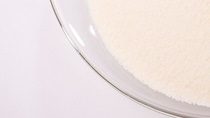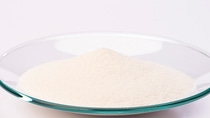Our portfolio of Vitamin D3 products
Human Nutrition
Vitamin D3
An essential micronutrient for healthy bones
Vitamin D3 (cholecalciferol) is an essential micronutrient found in only a few foods. The best dietary sources are fatty fish and liver, while small amounts are contained in meat, dairy products, and eggs.
Vitamin D3 is naturally produced in skin upon exposure to sunshine. Insufficient production can occur in people with indoor lifestyles, sun avoiders, after application of ultraviolet (UV) protection or during wintertime in countries mainly of the Northern hemisphere. In addition, the skin’s ability to produce enough vitamin D3 naturally declines with age.
Dietary intake of vitamin D3 is crucial to health and well-being when the production of vitamin D3 in skin is insufficient. Vitamin D3 is required to keep calcium levels in the blood healthy (homeostasis) and for normal development of the skeleton. Besides being the “bone health” vitamin, vitamin D3 is important for immune function, muscular function, and more. Many people around the world have a low vitamin D3 status, independent of their dietary habits.
Sources: Dunlop E et al, 2025; Jiang Z et al., 2023; Wang T-Y et al., 2023; Amrein K et al., 2020; NIH Fact Sheets for Health Professionals and Consumers, Vitamin D (November 2025); IOM Dietary Reference Intakes for Calcium and Vitamin D, 2010. Please note, the above information is based on scientific knowledge and does not constitute an overview of authorized health claims.
The global market for vitamin D3 is experiencing steady annual growth, driven by increasing consumer interest in trusted ingredients that are closely associated with overall health and wellbeing.
Vitamin D3 is widely used in a variety of applications, including fortified food and beverages, dietary supplements, as well as pharmaceutical products. This growing demand is largely attributed to the rising prevalence of bone and joint health concerns, which continue to affect a significant portion of the population.
As awareness of the health benefits of vitamin D3 expands, so does its role in supporting long-term wellness across diverse consumer segments.
Sources: Vitamin D Market Size, Share, Growth and Industry Report, 2022-2030 (marketsandmarkets.com; FMCG Gurus, Understanding Health and Wellness Trends in 2023; Global Vitamin D Market size, share, Growth, forecast 2030 (sphericalinsights.com); Vitamin D Market Size to Hit USD1,533.32 million by 2034;
What makes BASF’s vitamin D3 an excellent choice for your products and applications?
- Reliability +
- Continuous investment and optimization in production assets since decades in Western Europe.
- Pro-active and transparent customer communication.
- Quality +
- High-quality vitamin D3 products for functional nutrition, dietary supplements or pharmaceutical products available.
- Industry-related quality standards (FSSC 22000, HACCP, GMP Pharma).
- High-quality product packaging and transportation.
- Self-service 24/7 via Nutrition Virtual Assistants.
- Performance +
- Proven high-performance products that consistently perform.
- Excellent stability of gelatin-free powders in vitamin mineral premix and tablets.
- High standard analytics.
- Sustainability +
- RSPO certification available for selected products.
- Efficient handling of resources enabled by the Verbund.
- Product Carbon Footprint (PCF) according to industry standard.
High-quality vitamin D3 oils and powders with excellent product characteristics for a wide range of applications such as functional nutrition, dietary supplements and pharmaceutical products.
- High-quality vitamin D3 powders and oils
- GMP/pharma documentation available for selected grades
- High stability in multivitamin mineral premix and tablets
- Powders have 36 months retest period, no cooling required
- For functional nutrition, dietary supplements and pharmaceutical products
- Coming with a Product Carbon Footprint according to industry standard
You could also be interested in







